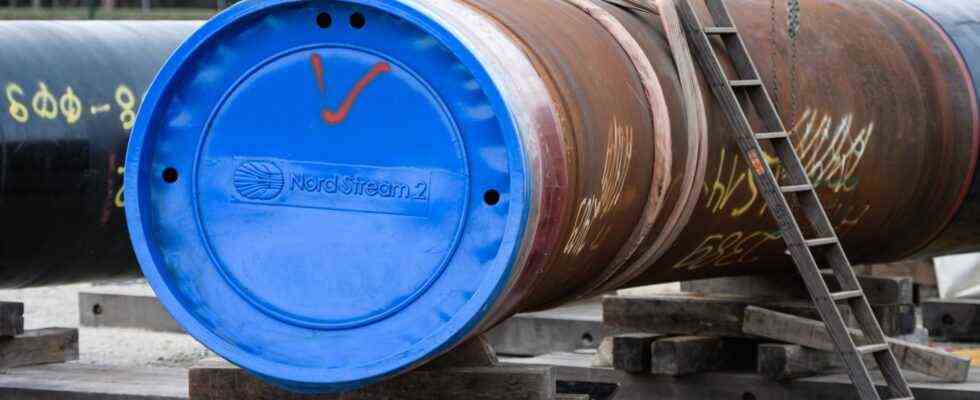Status: 07/30/2021 3:14 p.m.
Europe’s gas storage facilities are emptying, prices are rising sharply. Experts suspect that the Russian Gazprom group wants to put pressure on with lower deliveries – so that the Nord Stream 2 pipeline can be completed.
For months, Europe’s energy industry has been complaining about a decline in Russian gas deliveries. The result is half-empty storage space and rising prices. The Austrian Energy Agency recently announced that the country’s natural gas storage facilities are as empty as never before. They are just 30 percent full, while otherwise it is two-thirds at this time of the year. In this country too, gas supplies have shrunk.
There have been complaints of this kind over and over again in recent years, around 2015 and 2017, when the gas industry reported that storage facilities were half empty and was alarmed. But this time the explosion in prices is unusual, experts explain. In fact, according to data from the Leipzig-based energy exchange EEX (European Energy Exchange), the spot price for one megawatt hour (MwH) of natural gas has soared from EUR 28,000 in mid-June to EUR 41,000 – an increase of around 45 percent within six weeks.
Short supply
The gas companies blame the Russian Gazprom group in particular, because it has cut its deliveries to Europe and thus caused a shortage of supply. Eren Çam, Senior Research Consultant at the Energy Economics Institute (EWI) in Cologne, summarized the situation as follows: “The gas storage facilities in Europe are barely full. At the same time, demand has increased, especially in China and other parts of Asia. In addition, there are downtimes and maintenance work on the infrastructure aggravated the situation. ” Natural gas production in Western Europe, above all in the Netherlands, has also fallen.
The situation is additionally fueled by the prices for CO2 certificates. Since the beginning of the year, they have risen from 33 euros per tonne of CO2 to a new high of more than 57 euros. This is also due to the high gas prices. “Because higher gas prices stimulate the demand for coal, for example in power generation, and thus the demand for CO2 certificates,” says Çam.
Other experts put this statement into perspective. The low filling level of the underground gas storage facilities in the middle of summer is not unusual. In addition, the gas companies preferred to sell the gas from the storage facilities instead of buying new ones at high prices.
Construction work planned until the end of August
However, according to industry observers, the dispute over the Nord Stream 2 gas pipeline also plays a role. Gazprom originally planned to deliver gas via the new Baltic Sea pipeline as early as the end of 2020. Because of the construction delays, Gazprom is now continuing to deliver gas via the transit country Ukraine, but less than in previous years. In order to fill the gas storage facilities, Gazprom has repeatedly – most recently in the spring – to deliver more gas to Europe. However, that has not changed the current shortage.
According to the Ukrainian pipeline operator, Gazprom has not ordered any higher throughput capacities for August. This has further accelerated the price increase. Apparently, Gazprom fears that there could still be problems with the Nord Stream 2 pipeline – despite the recent agreement with the USA.
According to Matthias Warnig, head of the operating company Nord Stream 2 AG, the construction work on the tube should be finished by the end of August. The goal is to put the pipeline into operation this year, he said in an interview with the “Handelsblatt” this month. That would be two months after the general election in September.
Baerbock against completion of the pipeline
The Green Chancellor candidate Annalena Baerbock has spoken out against the completion of the pipeline. The agreement between Germany and the US government is “not a solution, especially not for the security of Ukraine”, criticized Baerbock in an interview with the “Frankfurter Allgemeine Zeitung”. Washington has lifted the sanctions against companies involved in the construction of the pipeline, but stressed that the pipeline has not yet been fully approved, said the co-chair of the Greens. The operation is far from being secured. “It is still in German hands,” said Baerbock.
However, experts do not assume that there will be a supply gap on the gas market in the winter months. After all, Russia has always met its delivery obligations – even in the most delicate moments of the Cold War.

